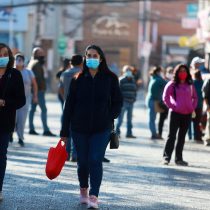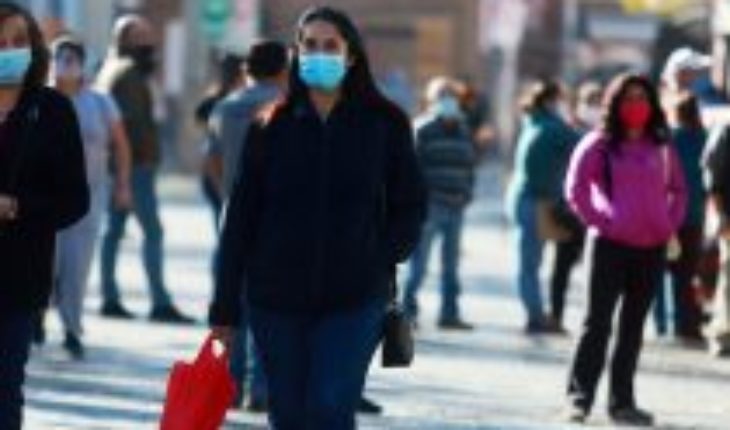
News of the world’s pandemic has generated concern and uncertainty not only about the effects it has and will have on people’s health, but also about how societies will adapt to post-Covid-19 reality. There is no doubt that serious difficulties will be experienced in various areas, but history has shown that crises of this magnitude also open spaces to remedy problems and generate new ways of relating that can lead to an increase and improvement of coexistence and quality of life.
During the second half of the twentieth century Pierre Bourdieu, James Coleman and Robert Putman, among others, developed the concept of social capital to refer to the social and organizational benefits generated by the establishment of networks of trust and respect for norms between individuals and institutions. On the one hand, trust reduces the need for control, which has consequences from the costs needed to maintain it to the stress of being under scrutiny from others; secondly, respect for standards and the generation of trust contributes decisively to good image and reputation; Finally, trust is also a key element that is appealed in times of crisis where barriers increase and mistrust has a price that cannot always be paid.
Robert Putman, in his works of the 1990s, recognizes two types of share capital: capital bonding and capital bonding and capital bridge or capital bridging. The first relates to the generation of networks that occur in relationships that have shared relatively similar life experiences, whether around their professional, family or social class activities. The bridge capital, meanwhile, gives account of the relationships that occur between the “one and the other”, in which heterogeneity and the inclusion of diverse subjects predominate, the idea of the bridge serves as the connector of those alternate relationships.
Social capital research has shown that this has been shrinking in recent decades due, among other issues, to the development of virtual networks in which the ties that are established tend to be much more tenuous and decompeded than those given in person and direct. Likewise, individualization in life projects and the reduced provision of free time to socialize have affected this decline.
The case of Chile
Chilean experience in relation to social capital follows the pattern of countries that have experienced significant economic growth in a few decades, giving the paradox that the bond capital is getting stronger and the bridge, weaker or even in the process of accelerated dissolution.
The bridge capital is obtained when there is a quality public education and whose maximum expressions at the time were the National Institute, the birthplace of fifteen presidents of the Republic, intellectuals, scientists and artists; and the University of Chile, with a presence in much of the national territory and which has promoted regional and central development with high quality standards. The contribution of the State to these and other educational institutions has yielded as a result of a model of development that bets on private activity over the social, political and cultural integration that encouraged the State.
There is also no bridge social capital in the increasingly segregated neighborhoods without common spaces of coexistence, nor in political parties that have little approval and citizen participation. Even in popular environments such as big city parks, mass sports or mass musical shows there is heterogeneity, what predominates is the segmentation and reproduction of peer-to-peer relationships.
The future of social capital after the pandemic
Quarantine, a word known to many but hardly experienced by anyone in their lifetime, has been a condition since April of this year that has created uncertainty, instability and fear for millions of Chileans across the country. Many have had to endure this period in the solitude of their home and their only contact with the outside world has been given by communication through online networks. This isolation requires reflection on the relevance it has for a society in crisis and with structural trawling problems, the value of social capital as a resource that will allow the population to be reintegrated into a society very different from that which existed before the pandemic produced by Covid-19.
While, as described above, the preceding years were not very encouraging to expect an improvement in social capital, the same need to overcome and learn from the crisis could provide a space for social capital to be considered a key driver in Chile’s social, economic and political recomposition.
In this sense, there are certain conditions that will facilitate the development of the social capital and particularly the bridge capital. In the post-crisis periods, it is imperative to reconstitute the social and economic fabric given the context of labour instability, low liquidity and consumer mistrust. These factors require innovating, seeking new forms of associativity and increasing collaboration between actors who in normal environments have to operate under conditions of competition
An interesting case to appreciate in this regard is the growth that has experienced in the country the development of the so-called “B Companies”, in which Chile stands out not only regionally, but also worldwide. This type of company in its definition highlights its differentiation with conventional companies for their commitment to the environment and social integration, seeking impacts at the local level and collaborating with their clients in a series of actions ranging from social sustainability, recycling and improvement of neighborhoods and public spaces.
Another interesting case we see is the massification of online education, which, while tending to isolation of individuals, can give way to an increase in the opportunities of people with physical and geographical mobility difficulties by integrating them into the country’s educational system. Finally, contemporary history shows us that after critical periods and given the need to energize economies, the State expands its participation and support for economic activity by introducing social and economic reforms that tend to greater integration of sectors affected by the crisis, reinforcing in passing, the organization of workers in the defense of their rights and the new working conditions that are already possible to warn in the country.
The content poured into this opinion column is the sole responsibility of its author, and does not necessarily reflect the editorial line or position of El Mostrador.





